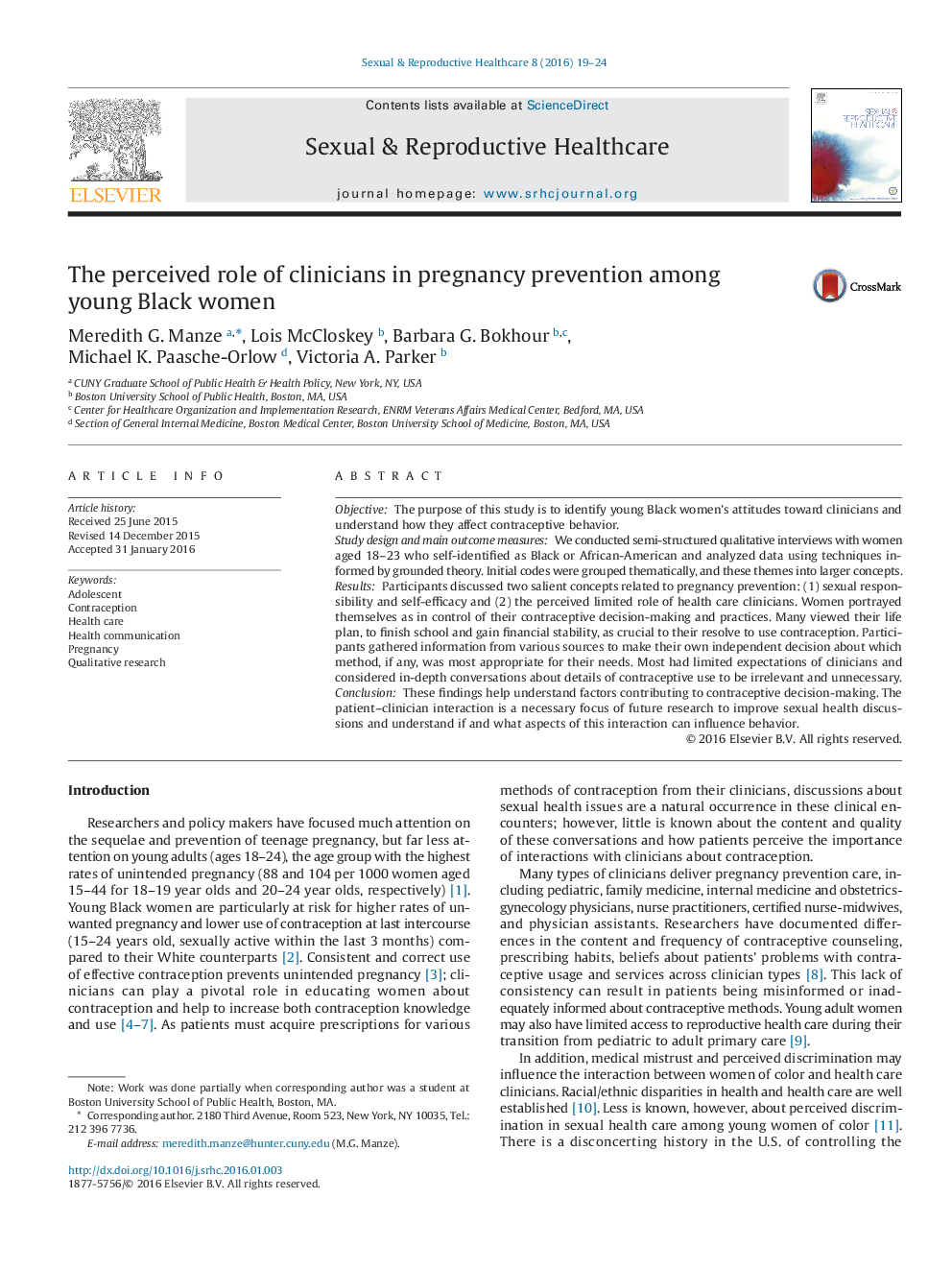| Article ID | Journal | Published Year | Pages | File Type |
|---|---|---|---|---|
| 2636106 | Sexual & Reproductive Healthcare | 2016 | 6 Pages |
•Women portrayed themselves as independently in control of contraceptive decisions.•Perceived discrimination was not a salient influence on contraceptive behavior.•Most had limited expectations of how clinicians could influence contraceptive use.
ObjectiveThe purpose of this study is to identify young Black women's attitudes toward clinicians and understand how they affect contraceptive behavior.Study design and main outcome measuresWe conducted semi-structured qualitative interviews with women aged 18–23 who self-identified as Black or African-American and analyzed data using techniques informed by grounded theory. Initial codes were grouped thematically, and these themes into larger concepts.ResultsParticipants discussed two salient concepts related to pregnancy prevention: (1) sexual responsibility and self-efficacy and (2) the perceived limited role of health care clinicians. Women portrayed themselves as in control of their contraceptive decision-making and practices. Many viewed their life plan, to finish school and gain financial stability, as crucial to their resolve to use contraception. Participants gathered information from various sources to make their own independent decision about which method, if any, was most appropriate for their needs. Most had limited expectations of clinicians and considered in-depth conversations about details of contraceptive use to be irrelevant and unnecessary.ConclusionThese findings help understand factors contributing to contraceptive decision-making. The patient–clinician interaction is a necessary focus of future research to improve sexual health discussions and understand if and what aspects of this interaction can influence behavior.
